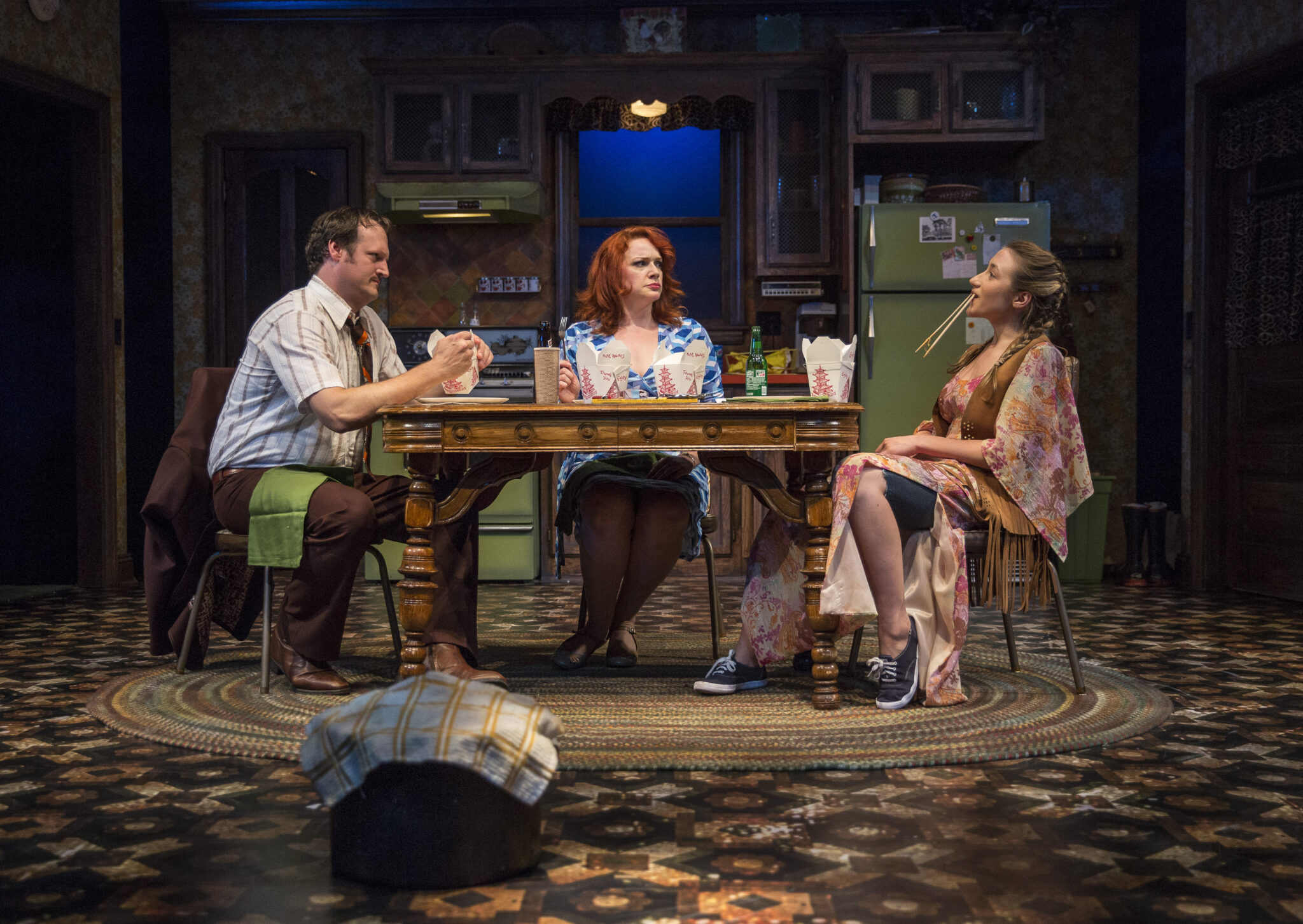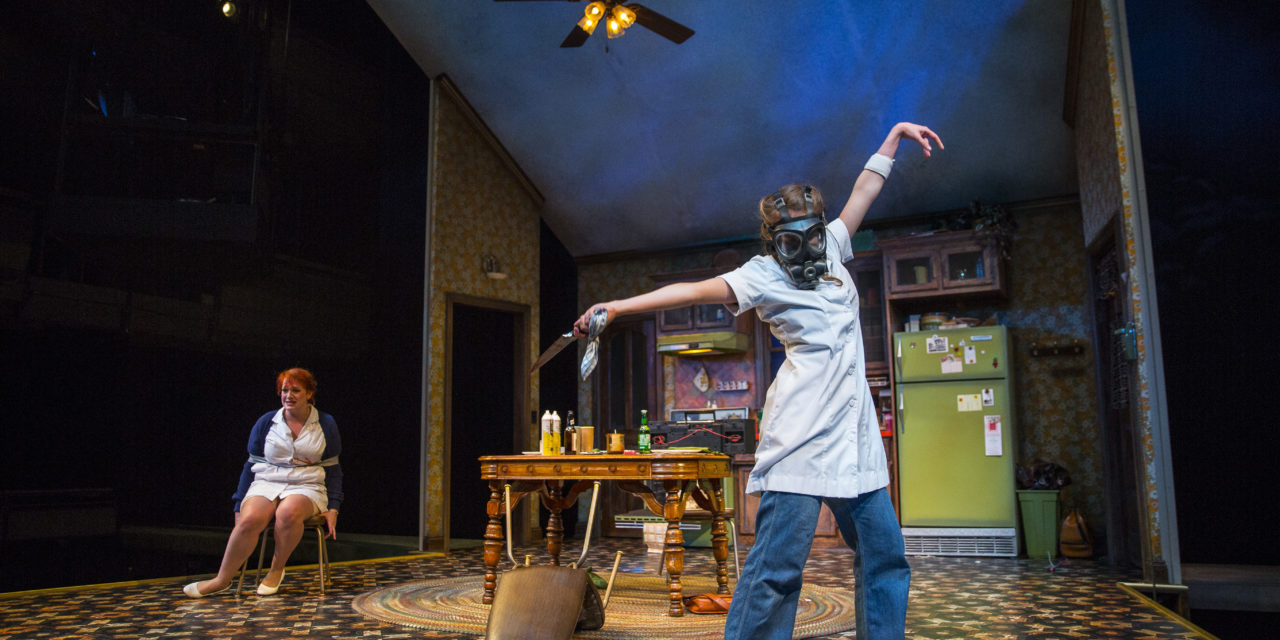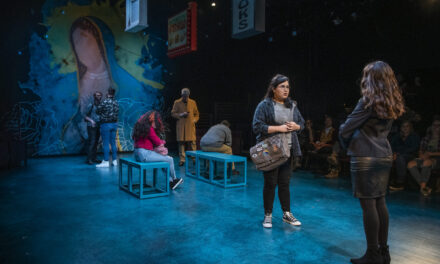While Charise Castro Smith began her career as an actor, in recent years the Miami native has emerged as a major playwright to keep an eye on. Her most produced play, Feathers And Teeth, was featured in the Goodman Theatre’s 2013 and 2014 New Stages Festival and has since been produced at the Goodman, Kitchen Dog Theater, and Artists Repertory Theatre. This fall, Mildred’s Umbrella Theatre Company will bring Feathers And Teeth to Houston audiences from October 19-November 4, under the direction of Jacey Little.
Castro Smith’s other plays include Estrella Cruz [The Junkyard Queen], Boomcrackfly, and The Hunchback Of Seville. Her most recent play, El Huracán, won the National Latino Playwriting Award, made The Kilroy’s List 2017, and received a reading at the Two River Theater Crossing Borders Festival in 2017. She was a Van Lier Fellow at New Dramatists in 2012-2013. Castro Smith has a BA from Brown University and an MFA from the Yale School of Drama.
In this interview, Castro Smith discusses Feathers And Teeth, dysfunctional family dramas, and her work as a playwright.
Trevor Boffone: Feathers and Teeth receives its Houston premiere this fall at Mildred’s Umbrella. Notably, the play is inspired by Hamlet and 1970s horror films. Why Hamlet? Why horror?
Charise Castro Smith: The Hamlet piece of it comes from the fact that I’m a serious Shakespeare nerd. During grad school, and afterward as an actor I got to immerse myself in the worlds and words of those plays and fell in love. But I found myself consistently frustrated by the fact that most of the parts were for dudes. With Feathers And Teeth I wanted to challenge myself to reinvent the core story of Hamlet with a teenage girl at the center of it. And the horror… well, I started writing the play and then all of a sudden a weird creature in a pot showed up. And I didn’t know very much about the genre at that point and so I went back and watched a bunch of great classic horror films and loved how stylized and in many cases, theatrical they were. Also, I realized that out of all the theatre I’d seen, only one play had truly scared me (as in jump-scared me) which was The Pillowman. I got really interested in what it would be like to try and create genuine scares in live theatre. And so all these ingredients got thrown into the pot and Feathers And Teeth was born.
Trevor: In general, what new dimensions do you hope to bring to the genre of dysfunctional family dramas?
Charise: I think that any good family drama helps us empathize with difficult people—see them in a new light that maybe we can take home to shine a little more compassion on the people around us. Although all the characters in Feathers And Teeth do terrible things, hopefully, we understand where they’re coming from. And with Chris, in particular, it’s about this animal grief that is consuming her—that’s consuming the whole family really.
Trevor: Can you tell us more about your writing process?
Charise: Every play is different, but usually there is some image that inexplicably gets stuck in my head. With Feathers And Teeth, it was an anxious woman with big hair sitting in her 70’s kitchen reading a National Geographic. And then I’ll start to write scenes that speak to that image and see where they go. And as the play develops I’ll usually start to do some research to pad out that particular imaginary world. But no play is finished until it’s been in rehearsals with actors because they’re the ones who know if a play really works or not.

Eric Slater (Arthur), Christina Hall (Carol) and Olivia Cygan (Chris) in Feathers And Teeth by Charise Castro Smith, directed by Henry Godinez at Goodman Theatre. Photo by Liz Lauren.
Trevor: You’ve received much acclaim this year for your latest play, El Huracán. Can you tell us more about how you draw from The Tempest to tell the story of three generations of women in the eve of Hurricane Andrew?
Charise: El Huracán was actually a pretty direct response to writing Feathers And Teeth. I thought–okay I wrote a crazy funny weird play about revenge, what happens if I try to do the opposite–to write a play about forgiveness? And so there was The Tempest, a play about exile, magic and the necessity and difficulty of forgiving. I grew up in Miami and started thinking about big storms—the power of nature to nurture and also to utterly destroy—and remembered the devastation after Hurricane Andrew, how difficult it was to rebuild after that. El Huracán is also about a family dealing with Alzheimer’s and how destructive that can be for a family. But how ultimately the only way to survive is to forgive.
Trevor: You’ve also written for television with credits such as The Exorcist and The Haunting. Can you tell us more about how you made the transition from the stage to the small screen? How does writing for the two mediums differ?
Charise: There are actually some big points that TV and theatre have in common. Both are deeply collaborative, and being on set sometimes feels like being in a long, extended tech process. But the biggest thing I had to learn was that while theatre tends to be about words, TV is mostly visual. And whereas with theatre an audience is in a room and can be focused on anything that interests them in that room, with TV you are guiding the audience to focus on exactly what you want. But both of them need great characters—that’s why we stay engaged in a play or binge watch 10 episodes of a show on Netflix.
This post was written by the author in their personal capacity.The opinions expressed in this article are the author’s own and do not reflect the view of The Theatre Times, their staff or collaborators.
This post was written by Trevor Boffone.
The views expressed here belong to the author and do not necessarily reflect our views and opinions.

















